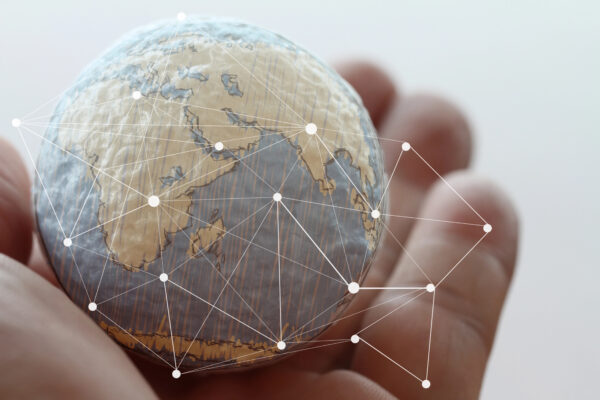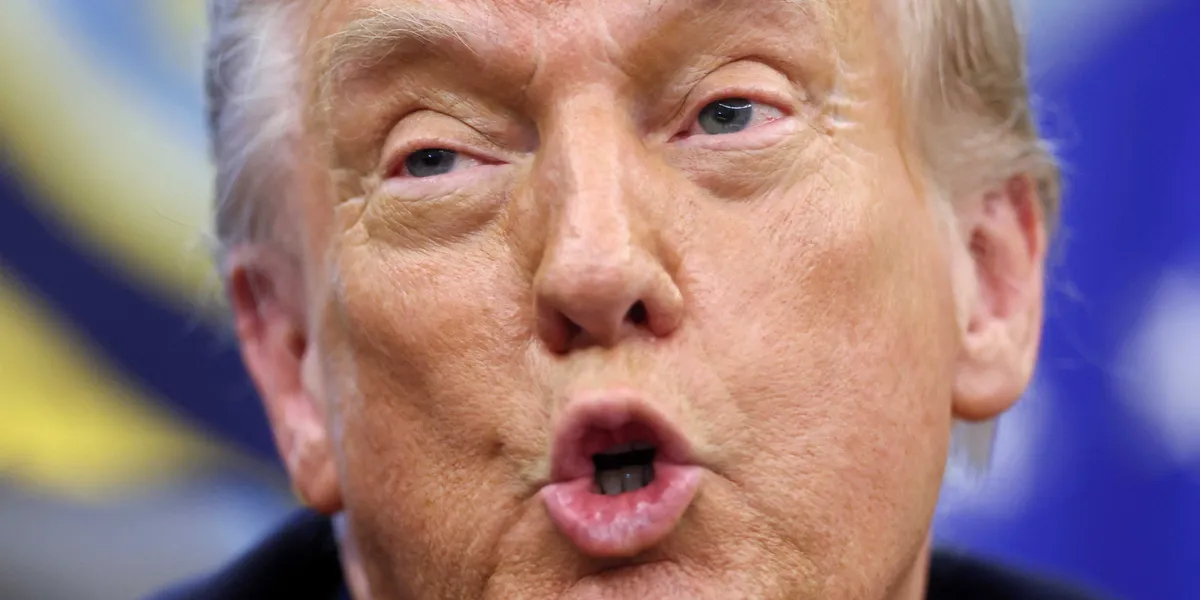Copyright thediplomat

At the moment of writing, the fourth anniversary of Russia’s full-scale invasion of Ukraine is only four months away. At the same time, Israel has resumed bombing Gaza after the failure of a weak U.S.-brokered peace agreement. The deal had briefly interrupted what a commission of United Nations has defined as a genocide perpetrated by Israel in Gaza, Palestine. In the meantime, the world is entering the seventh year since the start of the China-U.S. trade war and related policies. In this troubling context, commentators across Western media now urge audiences to adapt to what they describe as a conflictual “new normal.” This “new normal,” in the dominant Western reading, describes a world in which conflict, disruption, and overlapping crises have become, not an exception, but the standard of global politics. The supposed rupture of the global liberal order and the failure of its institutions is leading to the end of liberal “peace,” economic globalization, and the birth of a conflict-prone multipolar system. But this narrative of global conflict and economic decoupling is both misleading and Eurocentric. What we are witnessing instead is not deglobalization but reglobalization: the re-entry of the Global South as an engine of economic integration. In places like Uzbekistan, policymakers have doubled down on economic liberalization and internationalization, courting investment from East and West alike, including from supposedly pariah states like Russia. In Tashkent, globalization is still very much a reality. The Eurocentric Myth of Deglobalization I first developed this argument last June while recording a live episode of SPERI Presents… at the British International Studies Association conference in Belfast, an evocative city for any discussion about the political economy of war. There, I examined how the war in Ukraine, a local or at most regional conflict, came to be narrated in the West as a world-historical rupture heralding deglobalization, the supposed end of the era of the global economy toward some sort of new Cold War. This narrative is partial and profoundly Eurocentric. First, European and U.S. efforts to decouple from Russia have been neither total nor consistent, repeatedly undermined by energy dependence, electoral shifts, and Russophile far-right leaders. Meanwhile, the Global South has adopted a far more measured stance toward the war. The deglobalization storytelling erases the vitality and complexity of South–South economic linkages and the growing agency of Asian, African, and Latin American economies. In regions once under Russian imperial control, like Central Asia, there was initial sympathy for Ukraine, often couched in anti-colonial language around sovereignty. Yet solidarity did not translate into full alignment with Western sanctions. In parallel, most Asian economies, including China and India, filled the gap left by Europe, becoming primary destinations for Russian hydrocarbons and/or hubs for re-export. Businesses in Russia’s neighboring countries, like Kyrgyzstan, and Uzbekistan, became key facilitators of sanction evasion through logistical services, informal finance, and joint ventures. Trade turnover between Asian countries and Russia has grown amid the war. China and India together represented in 2023 the source or destination of around 52.2 percent of Russia’s goods. [caption id=attachment_298032 align=aligncenter width=4000] Figure 1 – Growth of Russia’s trade turnover (percentage of total) with the People’s Republic of China, India, Kazakhstan and Uzbekistan amidst the war in Ukraine (2018-2023). Data: OEC.[/caption] Reglobalization and Uzbekistan’s Global Turn Uzbekistan has an interesting position due to its largely untapped potential in terms of foreign investment. Tashkent’s economic strategy, as I argue in my recent article for Studies on Central Asia and the Caucasus, illustrates a far more credible story of the present global economy than the deglobalization narrative. The government has sought to attract a wide array of foreign investors, including Asian firms and companies from both the EU and Russia, into production sectors ranging from automotive to textiles and green energy. A flagship project is the BYD-UzAuto joint venture and its electric vehicle factory in Jizzakh. It symbolizes Uzbekistan’s ambition to join high-tech global manufacturing chains, as well as its opening to the world economy. China’s BYD is one of the few companies to challenge the UzAuto-General Motors joint venture, whose Chevrolets have dominated the Uzbekistani market for decades. Equally symbolic is the new visa-free travel regime between China and Uzbekistan, designed to promote both business and tourism. In a world where the European Union is re-erecting borders and populist right-wing nationalism demonizes mobility, such South–South openness stands out as a radical gesture of trust. China has given this trust to a growing number of countries in the Global South, as well as (unreciprocated) to the European Union. Contrast this with the West and you will find that U.S. President Donald Trump’s mercantilism, revived and expanded in his second term, has entrenched protectionism as the default of U.S. foreign economic policy. Europe, for its part, has followed suit with tariffs targeting Chinese electric vehicle imports, imposed on October 4, 2024 and never lifted despite many rounds of negotiation. The contrast is striking. While a fearful and divided West retreats from the global market it once championed, the Global South is weaving a new web of integration. As WTO Director-General Dr. Ngozi Okonjo-Iweala aptly put it, we are entering an age of “reglobalization,” an expansion of globalization to include regions historically excluded from its benefits. Western Hegemony in Crisis This shift exposes a profound contradiction. The international economic system built by the United States and Europe in the aftermath of World War II was meant to cement their dominance. Instead, it has generated new centers of power and capital. Faced with that reality, Western governments, media, and publics, have responded by projecting the U.S. and Europe’s own economic and identity crises as global disruptions, using both public narratives and economic coercion to sustain influence. The war in Ukraine provides a telling example. Western policymakers have struggled to reconcile moral condemnation of Russia with the pragmatic necessity of Central Asian cooperation. Western reactions to Central Asia’s ongoing economic connections to Russia have been mild, with more attention focused on maintaining warm ties with Central Asian leaders than the enforcement of sanctions. Uzbekistan’s news agency Daryo reported in 2024 that: European Council President Charles Michel reassured Central Asian leaders that the European Union does not intend to impose sanctions on their countries for bypassing the existing sanctions regime. European leaders have not only refrained from reacting to clear sanction-busting measures, but they have doubled down on a charm offensive to solidify relations with Central Asian leaders. Since 2022, Central Asia has seen an unprecedented surge in high-level European visits, including by EU officials and leaders from France, Italy, and Germany, reflecting Europe’s renewed effort to strengthen ties with the region after years of limited engagement. Yet, notwithstanding the engagement, Western normative power amid the war in Ukraine has been at its lowest. The pattern repeats elsewhere. The Israeli invasion of Gaza following Hamas’s October 7, 2023 attack has become a defining event for the erosion of Western credibility. The glaring disparity between European elites’ outrage at Russia’s crimes and EU leaders’ complicity in Israel’s genocide has reinforced China’s narrative of Western double standards. By endorsing Israel’s illegal invasion and invoking a limitless “right to self-defense,” Western leaders, including both most recent U.S. President Trump and his predecessor, Joe Biden, have undermined the legitimacy of international law and the institutions, such as the International Criminal Court, that once symbolized human rights’ universality. Meanwhile, domestic repression of pro-Palestine activism in the West, often justified through counter-terrorism legislation, has further eroded Western liberal credentials. As reported by The Guardian, a report by the International Federation for Human Rights (FIDH) highlights how governments in the U.K., U.S., France, and Germany have allegedly used counterterrorism laws and measures against antisemitism as tools to stifle dissent and silence advocacy for the end of genocide, and for Palestinian sovereign rights in Gaza and the occupied West Bank. Reglobalization from the South The narrative surrounding the two conflicts reveal the fallacy and provincialism of “global” narratives of crisis. Far from fragmenting, the world economy continues to operate through global circuits of production, trade, and finance, only with new beneficiaries and shifting geographies. The perceived necessity for Western political and economic communicators to engineer selective decoupling is, in reality, an attempt to reassert control over a system it no longer commands. What we are witnessing instead is a “reglobalization.” Across Asia, Africa, and Latin America, governments and businesses are forging new trade corridors, financial mechanisms, and digital infrastructures that bypass Western intermediaries. Supply chains in electric vehicles, renewable energy, and pharmaceuticals increasingly run through hubs such as Shenzhen, Mumbai, Jakarta, São Paulo, Astana, and Tashkent. These developments are not simply economic. They represent the emergence of a different political imaginary, one that values interdependence without hierarchy. South-South visa-free travel agreements, regional payment systems, and local-currency trade are important signs of change if not yet a coherent alternative to the dollar-centric order. For sure they mark a tangible shift in aspiration. For Western policymakers, the choice is stark. They can either join this new round of global integration, adapting to a genuinely multipolar economy, or become obstacles to it. The Political Economy of the “New Normal” Ultimately, the “new normal” is not a structural inevitability but a political choice. Deglobalization, protectionism, and confrontation are decisions made by leaders who perceive loss and react with fear. Reglobalization, openness, and South–South cooperation are equally choices, driven by leaders who see opportunity in change. The agency of these actors, rather than any abstract law of history, determines the shape of the global order to come. The crisis of Western hegemony need not translate into global segregation and war; it can become the starting point for a fairer and more inclusive international economy. The current moment, between war and disintegration, and cooperation and renewal, demands intellectual creativity and openness. The myth of deglobalization comforts those unable to imagine a world beyond Western centrality and coloniality, precisely the horizon that current processes of reglobalization are beginning to redraw. This essay draws on two of my recent academic publications that critique the notion of deglobalization and develop the alternative concept of reglobalization in Globalizations and Studies on Central Asia and the Caucasus.



